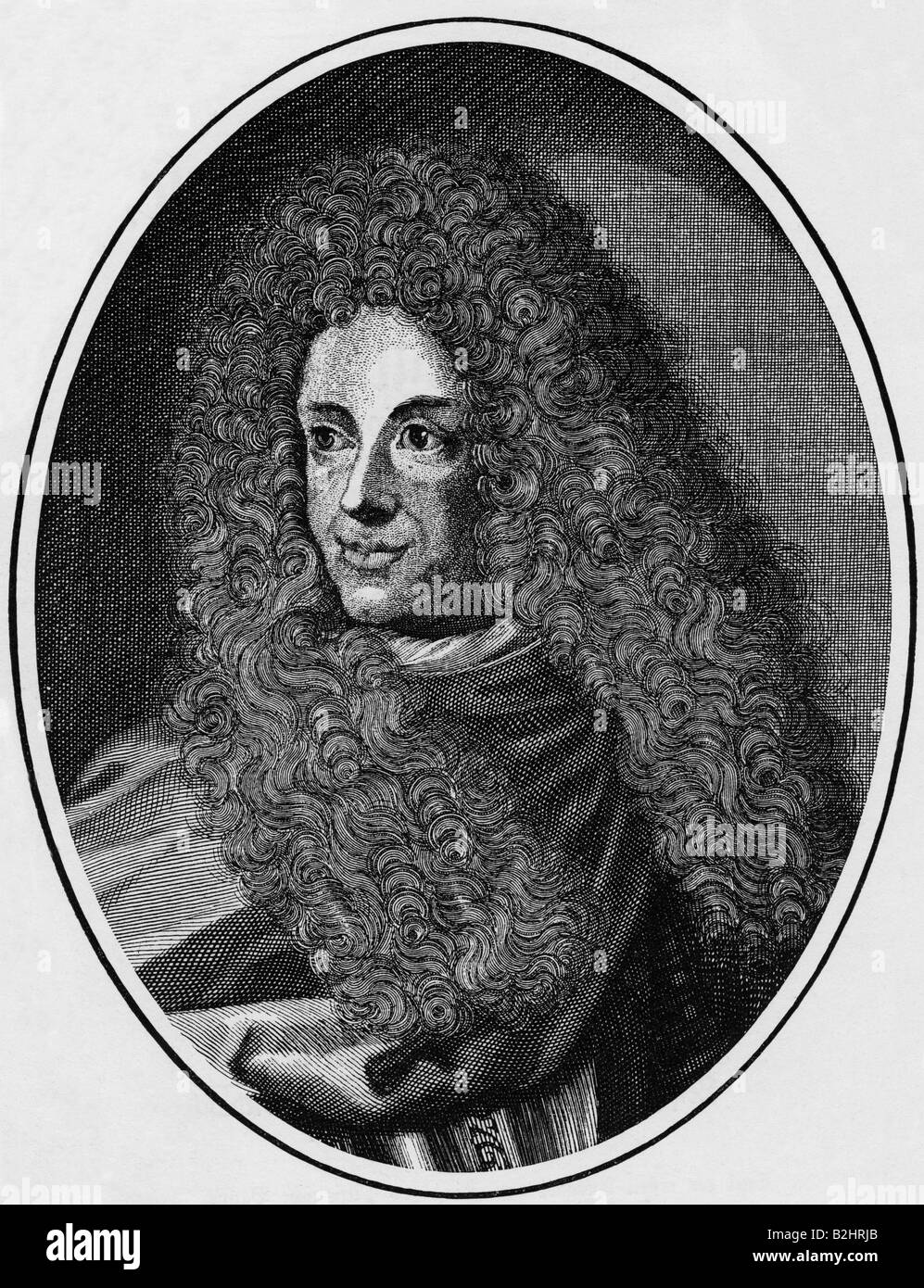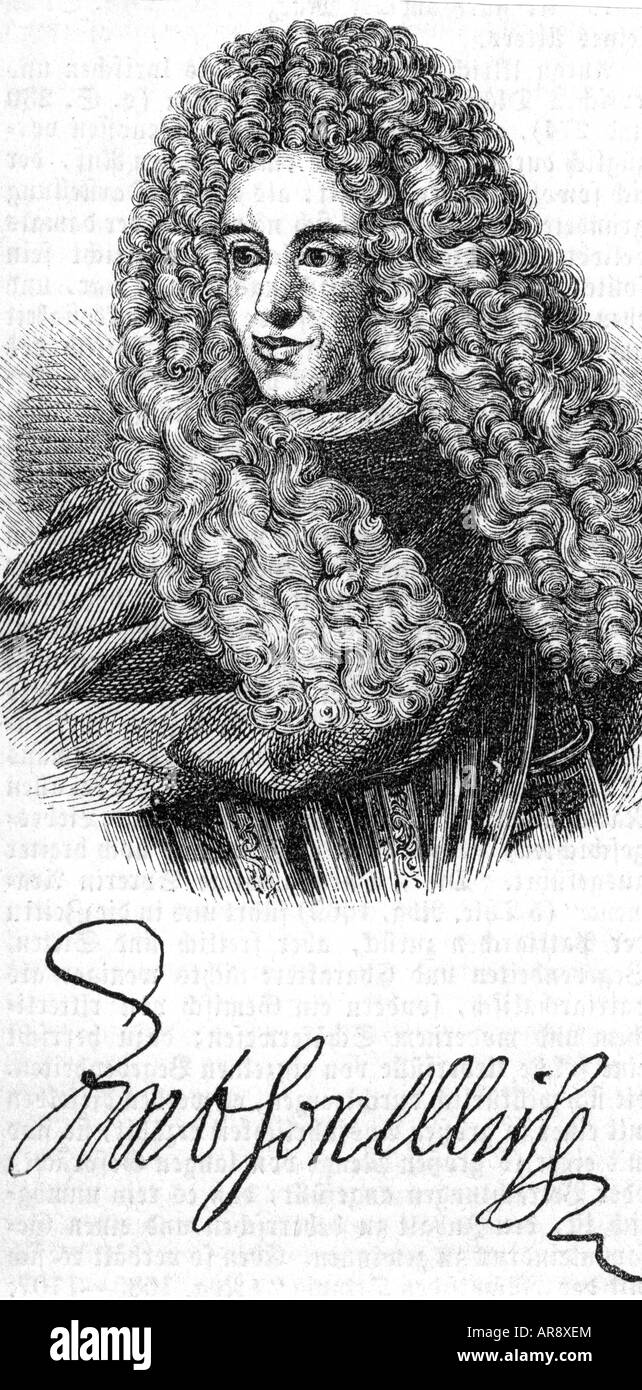Anthony Ulrich, Duke of Brunswick-Wolfenbüttel
Anton Ulrich of Brunswick- Wolfenbüttel ( born October 4, 1633 Hitzacker, † March 27, 1714 in Salzdahlum near Wolfenbüttel ) was Duke of Brunswick and Lüneburg and Prince of Brunswick- Wolfenbüttel from the House of Guelph. He is considered the prototype of the enlightened absolutist ruler of the Baroque era: artistic work makes us aware of external representation and advancement of education equally interested and as a poet and novelist himself.
- 2.1 patron of the arts and education
- 2.2 writers 2.2.1 poem example
- 3.1 novels
- 3.2 Poetry
- 3.3 libretti and plays
Life
Youth, Study and Travel
Anton Ulrich was the second ( surviving ) son of Duke August the Younger and Princess Dorothea of Anhalt- Zerbst. Received his first lessons from Justus Georg Schottelius and Sigmund von Birken. Even as a student and later as a student wrote the prince first own songs. He studied at the University of Helmstedt and received his doctorate in theology.
His grand tour that followed in the study, led by South Germany, Italy, and on the return trip through the Netherlands. He learned, among others, the novelist Madeleine de Scudéry know and discovered his passion for the theater. On August 17, 1656 he married Princess Elisabeth Juliane von Holstein - Norburg. On this occasion, wrote Anton Ulrich his first stage play, the Spring ballet. In the 1680s he traveled alone or with his family four times to Venice, inspired by his cousins , who ruled in Celle, Hanover and Iburg. The city impressed Anton Ulrich sustainable.
Co-regent
The father pulled Anton Ulrich frequently approach to government business. 1666 died August the Younger, Anton Ulrich received Schoningen, Jerxheim Voigtsdahlum and Calvörde as appanage prince and lived in the house for Wolfenbüttel. A year later, his older, reigning brother Rudolf August appointed him governor. 1685 rose Anton Ulrich on equal co-ruler alongside his brother, who dedicated more hunting. Anton Ulrich appeared as a politician particularly the desire for power of his cousin Ernst August resolutely opposed. There was a quarter-century of tension and competition between Hannover and Wolfenbüttel.
On Anton Ulrich's initiative to Duke Rudolf August agreed with the other princes of the Brunswick House in the spring of 1671 Burgwedel to jointly combat the persisting on autonomy City of Brunswick, who had to submit to the sovereign authority of the Duke on June 10, 1671. Wolfenbüttelsche troops fought 1674/75 and 1689 with against France, in 1675 near Bremen and Pomerania with against Sweden and 1683 with the Imperial troops in Hungary and in the Peloponnese against the Turks. 1692 was Anton Ulrich Chief of Leibregiment Anton Ulrich walk ( 1704 Leibregiment walk). In 1693 Herzog Anton Ulrich allied with Denmark as well as in 1698 and 1701 with Louis XIV With the help of the French, he not only expanded the Wolfenbütteler army considerably, but also expanded especially the princely art collections. Anton Ulrich helped as a skillful diplomat incurred between the Empire and Sweden in the Duchy of Bremen settle disputes; Braunschweig -Wolfenbüttel part Thedinghausens fell down in the process. Dissatisfied with the fact that the younger branch of his house in 1692, the electoral dignity had been granted, he was a faithful followers to the enemy of the Emperor. Anton Ulrich was shocked to punishment by imperial mandate of 18 February 1702 of the co-regency; on the night of March 20, 1702 and moved Hanoverian cellische troops in the field a Wolfenbüttelsche, disarmed the troops and cut off the cities of Braunschweig and Wolfenbüttel from any connection with the surrounding area from.
Anton Ulrich fled to Gotha, and Rudolf August had on April 19, 1702 in Braunschweig, a settlement in which he agreed to binding, not to oppose the Hanoverian primogeniture and to bring his brother to recognize this agreement.
Autocrat
Anton Ulrich acquiesced and continued to rule with, or rather for his brother until he was sole ruler in 1704 through his death on 26 January. His minister, chancellor provost of Wendhausen managed in 1706 to bring a complete reconciliation between the older and younger line of Braunschweig to pass. Braunschweig -Wolfenbüttel renounced his claims to the total home Braunschweig closed but the Duchy of Saxe -Lauenburg, recognized the Electorate of Hanover and was awarded Castle Camping and belonging to Gifhorn villages Bevenrode, Waggum and Bienrode.
Anton Ulrich sought compensation for his losses at the younger House of Brunswick by close connection with Austria; Means to an end was the marriage of his granddaughter Elisabeth Christine, the daughter of his second son Ludwig Rudolf, with the brother of Emperor Joseph I, Archduke Charles of Austria, later Emperor Charles VI. The most evangelical faith hanging granddaughter struggled a long time, but had to on May 1, 1707 in Bamberg Cathedral to the Catholic church transgressed.
1708 was followed by her marriage to Archduke Charles. The close relationship to the Austrian imperial family motivated Anton Ulrich of new ambitions. His hopes for acquisition of part of the ancient possessions of the Guelfs, the Countries of 1706 outlawed the Elector of Bavaria, were fulfilled just as the on acquisition of the diocese of Hildesheim and especially the Archbishopric of Cologne and its related Elector.
To fortzutreiben its expansion plans, converted Anton Ulrich 1709 secretly to the Catholic faith. It was not until the following year he put in the Bamberg Cathedral in front of the Elector of Mainz a public profession of faith. His subjects he assured religious freedom. To justify his him politically non-user change of faith, he published the font Fifty motives. Anton Ulrich lived to see that the husband of his granddaughter was elected emperor in 1711 and to be situated in the same year his second granddaughter Charlotte Christine by marriage to the Grand Duke Alexei of Russia, son of Peter I, the possibility opened Empress.
Anton Ulrich died at the age of 80 years. He was buried with his wife Elisabeth Juliane in the Guelph tomb of the Wolfenbüttel main church BMV. He was succeeded by his eldest son, August Wilhelm.
Progeny
Anton Ulrich married on August 17, 1656 Elisabeth Juliane von Holstein - Norburg ( 1634-1704 ), daughter of Frederick of Schleswig -Holstein - Norburg. The couple had 13 children, six of whom died before their first birthday:
- August Friedrich (1657-1676), fallen, Hereditary Prince
- Elisabeth Eleonore (1658-1729) to 1675 married to John George of Mecklenburg ( 1629-1675 ), second husband in 1681 with Bernhard I of Saxe- Meiningen
- Anna Sophie (1659-1742) to 1677 married to Karl Gustav von Baden -Durlach
- August Leopold (1661-1662), Prince
- August Wilhelm (1662-1731)
- August Heinrich (1663-1664)
- August Karl ( * / † 1664)
- August Franz (1665-1666)
- Augusta Dorothea (1666-1751) to 1684 married to Anton Günther II of Schwarzburg- Sondershausen
- Amalia Antonia (* / † 1668)
- Henriette Christine (1669-1753), Abbess of Gander Home
- Ludwig Rudolf (1671-1735) to 1690 married Christine Louise of Oettingen- Oettingen
- Sibylle Rosalia (1672-1673)
Art, education, literature
Patron of the arts and education
Anton Ulrich's model for his lifestyle was Louis XIV in Braunschweig He led the French language and French customs and were enormous, the state budget threatening onerous sums for luxury, but also for the promotion of the arts and education. He taught opulent feasts and opera performances from in Salzdahlum, Wolfenbüttel and Braunschweig, for 1690 in Brunswick one of the largest former opera house was built, the Opera House on Hagen market, which emerged from the renovation of the former town hall into disrepair. This was facilitated singers and composers such as Johann Sigismund Kusser, Johann Rose Müller, Reinhard Keiser and later Johann Adolf Hasse. The box seats of the opera were not sold as in Veneto, but only rented one for each idea.
When his most significant action in the field of patronage is that he in Wolfenbüttel by generous financial support significantly expanded the Herzog August Bibliothek, founded by his father. As a librarian in the next office he hired Gottfried Wilhelm Leibniz, with whom he was friends. Anton Ulrich was also the promoter of Anton Wilhelm Amo, the first doctor of philosophy of African descent in Germany. With built by Hermann basket in Anton Ulrich's order in 1712 rotunda on the remains of the old stables in Wolfenbüttel, the Duke founded the first independent library building in Germany.
Anton Ulrich was modeled after the castle Marly- le- Roi from 1694 to 1695 the Salzdahlum palace built (although budget reasons only as a half-timbered house ) on which he brought his art collection, which he expanded constantly. He sought personal contact with artists, about to Adriaen van der Werff. 1713 Tsar Peter I was received in the palace to negotiations aimed at ending the Great Northern War. 1733 married the Prussian Crown Prince Frederick (later King Frederick the Great) and Elisabeth Christine of Brunswick- Wolfenbüttel - Bevern in Salzdahlum. The castle was demolished in the reign of King Jerome of Westphalia, auctioned off the inventory and sold. The remains of the art collection later formed the basis of the Herzog Anton Ulrich- Museum in Braunschweig.
1714-1716 was the Wolfenbüttel Castle under the architect Hermann basket a new facade of timber. From that time the stone entrance portal and the sculptures of the Austrian sculptor Franz Finck come on the bridge and along the moat, which embody the virtues and duties of the Dukes. In Seesen he was rebuilt with a baroque garden a hunting lodge to the ducal hunting lodge Seesen.
He also promoted the construction of the church in Calvörde, this is burned down on October 6, 1700.
Castle Wolfenbüttel with facade of Hermann basket, entrance and sculptures
Opera House on Hagenmarkt in Braunschweig
Herzog Anton Ulrich- Museum, Braunschweig ( in the new building of 1887)
Hunting lodge Seesen
Writer
Anton Ulrich is considered one of the most important writers of the Baroque. His literary output includes novels ( The illustrious term Syrian Aramena and The Roman Octavia ), religious poetry ( Chur - Baronial David Harpfenspiel ) and lyrics for musical comedies and operas ( Orpheus ). Many of these works were written in collaboration with his former teacher Sigmund von Birken, who dedicated the Duke a number of his own writings.
Anton Ulrich's lyrical role model was his teacher Georg Justus Schottelius, be a role model when writing novels was Andreas Heinrich Buchholtz. Duke Wilhelm IV of Saxe- Weimar Duke Anton Ulrich took in 1659 on the Fruitbearing society. His company name was The victory Prang end, his motto The rough air in defiance of his emblem, the red autumn rose.
To courtly festivities Ulrich wrote many librettos for operas, musical comedies and ballets that were significant for the history of the court theater and the opera. By Anton Ulrich's 61 hymns, which appeared as a Christian - Princely David - Harpfen game, several were taken in different hymnals (among Allow yourself to God, God, you endure: but my God, Oh, God, I should complain any longer ).
With his novels that embody the world view and the aesthetic ideal of the baroque era, with its labyrinthine plot and the spruce, formgebändigten style, Anton Ulrich is considered one of the founders of the German historical novel. Wide in the plant, prolix in the conduct, stiff and pedantic wanted in style, they may still not be denied an artistic design and vitality. In fact, his novel " Octavia " was read until well into the youth of Johann Wolfgang von Goethe much and from that used as a structural model for his own 1796 novel, Wilhelm Meister's Apprenticeship Joseph von Eichendorff mentioned Anton Ulrich in his book " The German novel of the 18. century in its relation to Christianity " (Paderborn, 1866) and refers to him as literary protagonists of the " so-called, reasons of state '. "
Some spiritual odes were admitted in Protestant hymnals, so the song Jesus is my stay, which is found in the Margrave of Baden Landen from 1772 ( song number 280 ), for example in Baden- Durlachischen Hymns of all Lutheran churches.
Poem example
Sterbelied (first three stanzas )
It is enough, my dull sense Longs to where my fathers limp. I finally good Fug, It is enough! I have to give me rest. I am ermüdt, I've done The day Bürd: There must be one evening. Release me, O Lord, spun from the plow, It is enough! Take from me the discomfort. The great burden has pushed me Yes almost suffocated, so many long years. Oh let me find what I'm looking for: It is enough! With such cross commodity.
Works
Novels
- The Durchleuchtige Syrerinn Aramena. 5 parts. Hofmann and Gerhard, Nuremberg, 1669, 1673 and 1778-80. Fashioned and shortened by Sophie Albrecht, 3 parts, Berlin, 1782-1786.
- Octavia. Roman history. 6 parts. Hofmann, Knortz and Gerhard, Nuremberg, 1685ff. Fashioned in 6 parts, Braunschweig, 1712.
Poetry
- Hocherleuchtete Sacred Songs A high people. 1665th
- Christian Princely David - Harpfen game. Gerhard, Nuremberg, 1667. Advanced White, Wolfenbüttel, 1670ff.
Librettos and plays
- Amelinde, Or: Dy triumphant soul. Stern, Wolfenbüttel, 1657th
- Regier Art Shadows Or: Presentation of several textures which can be-ing a potentate vorträglich or injurious. Stern, Wolfenbüttel, 1658.
- Orpheus from Thrace. Stern, Wolfenbüttel, 1659th
- Andromeda. A Royal Miss from Ethiopia. Stern, Wolfenbüttel, 1659th
- The Trojan Paridis judgment / From the Golden Apffel the ERIDIS. In 1662.
- Ballet of the day Or: Blooming Spring Delight. Stern, Wolfenbüttel, 1659th
- Ballet nature Or: Princely Spring lust. Stern, Wolfenbüttel, 1660.
- Iphigenia. A royal lady. Stern, Wolfenbüttel, 1661.
- The Masquerade Hercinie: Or Funny Elevator concerning the Hartz Forest. Stern, Wolfenbüttel, 1661.
- The Trojan Paridis judgment of the Golden Apffel the ERIDIS. Wolfenbüttel in 1662.
- Selimena. Bißmarck, Wolfenbüttel, 1663rd
- The Daniel Hoffmann. As he bey the King Dario ministered. Stern, Wolfenbüttel, 1663rd
- Ballet of Diana, Or: Ergetzliche pleasure of Diana. Stern, Wolfenbüttel, 1663rd
- The Troubled Irmenseul; or convert the Saxons country. 1669th

.jpg)

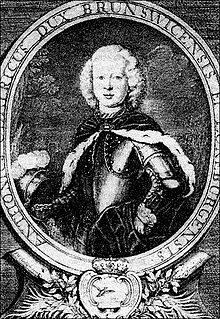

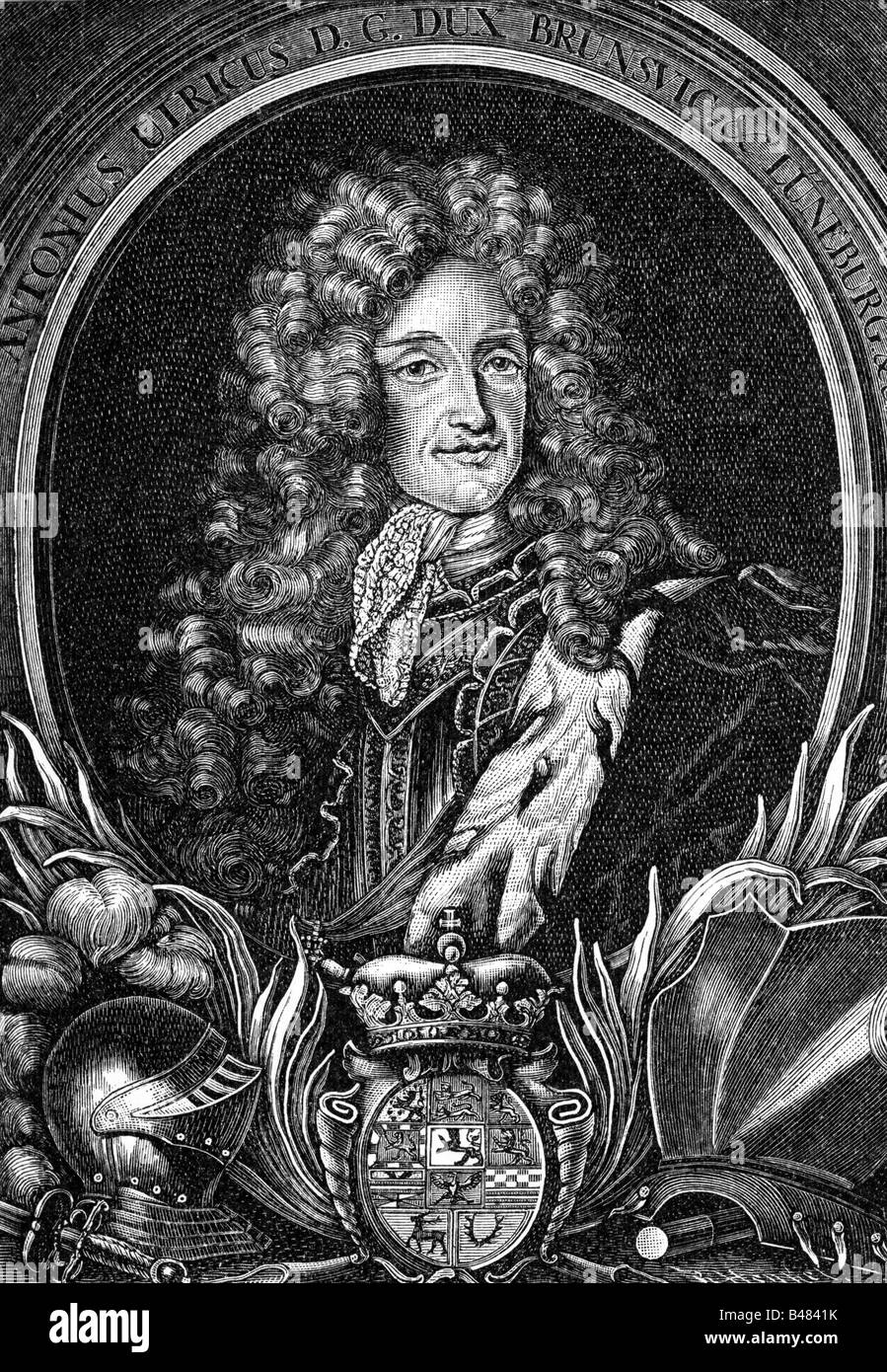

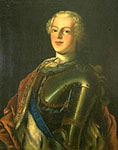
_Herzog_zu_Braunschweig_-_Wolfenb%2525C3%2525BCttel_-_Bevern.jpg/220px-Ludwig_Ernst_(1718-1788)_Herzog_zu_Braunschweig_-_Wolfenb%2525C3%2525BCttel_-_Bevern.jpg)
